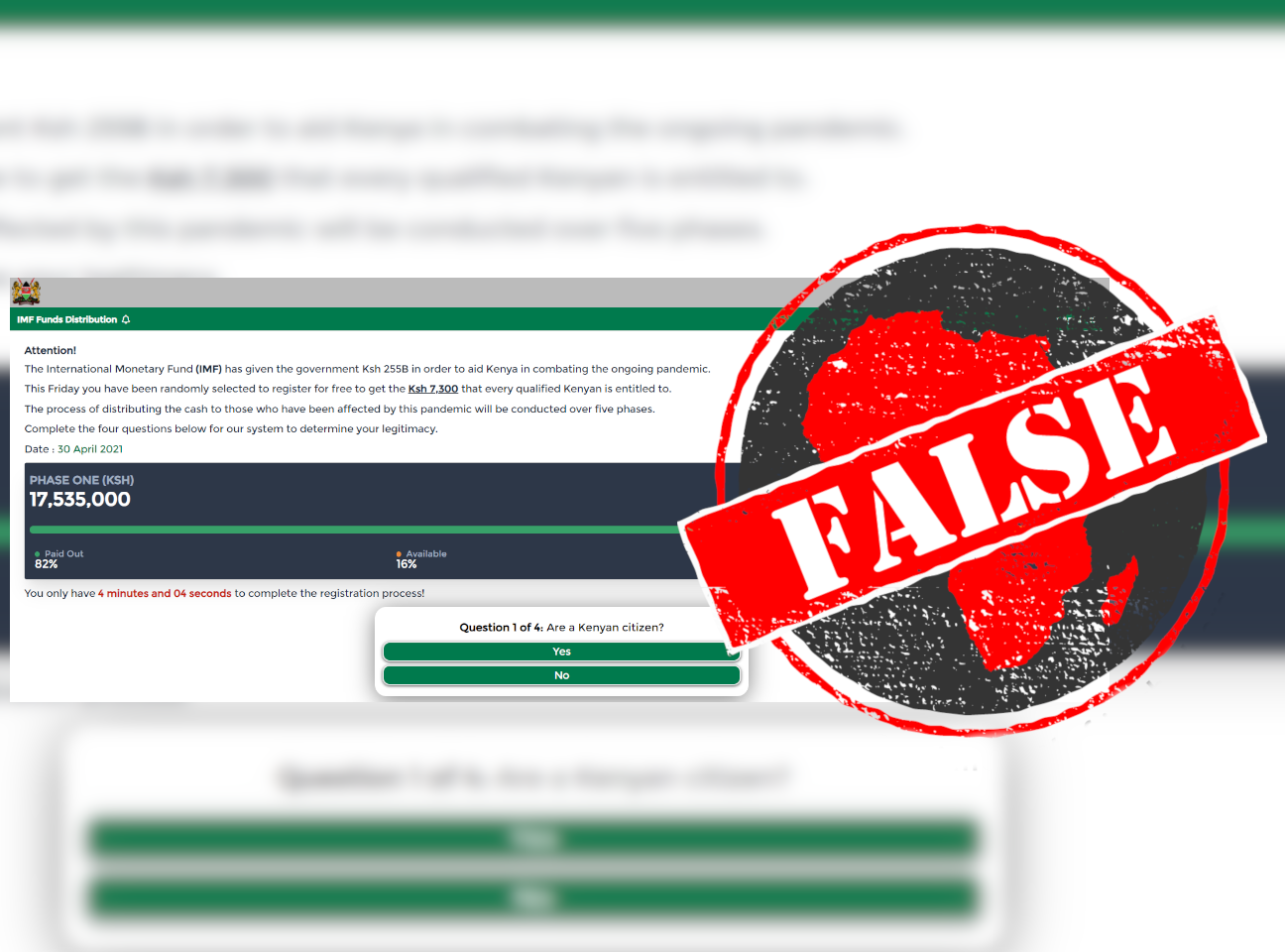“The International Monetary Fund (IMF) has given the government Ksh 255 billion in order to aid Kenya in combating the ongoing pandemic. This Thursday you have been randomly selected to register for free to get the Ksh 7,300 that every qualified Kenyan is entitled to,” reads a web page circulating in Kenya.
The page has appeared in different versions both on Facebook and WhatsApp platforms in Kenya.
It comes after the IMF approved KSh255 billion loan to help with Kenya’s Covid-19 pandemic response and to address the country’s debt vulnerabilities.
The page claims that the distribution of the cash to those who have been affected by the pandemic has started. But they will be required to complete four questions “for our system to determine your legitimacy”.
The four questions ask whether a person is a Kenyan citizen, how they acquired their citizenship, their age and if they need the funding.
But after filling out the questions, users are required to provide their personal information – full name, phone number and email address – to get the cash.
Africa Check filled the requirements using random details and it saved them all. In the end, we were told to share the page with eight groups or 20 friends on WhatsApp to receive the cash.
The page does not lead to an IMF website and no such programme has been announced by the Kenyan government.

Old tricks
This is just one of several similar scam techniques checked by Africa Check before. It is riding on the current conversation about IMF funds to Kenya.
Posts that ask people to interact by liking, commenting or sharing are usually engagement bait scams. The more people interact with a post, the greater its reach.
To protect yourself against online scams, read our guide to Facebook scams and how to spot them.
Republish our content for free
For publishers: what to do if your post is rated false
A fact-checker has rated your Facebook or Instagram post as “false”, “altered”, “partly false” or “missing context”. This could have serious consequences. What do you do?
Click on our guide for the steps you should follow.
Publishers guideAfrica Check teams up with Facebook
Africa Check is a partner in Meta's third-party fact-checking programme to help stop the spread of false information on social media.
The content we rate as “false” will be downgraded on Facebook and Instagram. This means fewer people will see it.
You can also help identify false information on Facebook. This guide explains how.


Add new comment